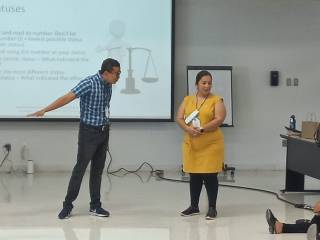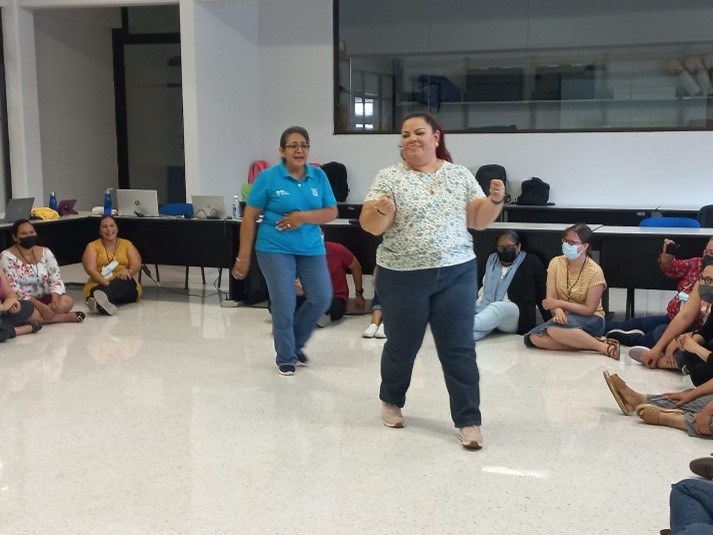
In this sense, being the brain an active agent in the construction of knowledge, doing theater provided inputs to program, reflect, think and establish the materials of the theatrical medium as a way of knowledge to develop meta-cognitive skills in the affective factors of learning at the higher education level.
What is drama pedagogy?
This educational methodology that develops body expression through a theatrical performance, allowed us to experience the flow of our emotions on a specific topic. In the same way it allowed us to empathize with the attitudes of our students, identifying through the corporal expression of emotions integrating art as education to develop and strengthen social awareness. This allows students to become builders of their own learning, contributing ideas of their own thinking, becoming active agents rather than just receivers of knowledge. Therefore, this methodology gives us the openness to apply it in any subject of the curriculum, and situation that the teacher considers pertinent.
What previous knowledge did we have about drama pedagogy?
At the time of developing the technique, we had no previous knowledge, however, in the past we had an approach to the sociodrama technique, a methodology that has a certain relationship with pedagogical drama. We identified that, unlike sociodrama, pedagogical drama does not use an established script for the development of activities; it starts from a generative idea, as the basis for students to develop their critical thinking, exposing solutions to the proposed problems, it also improves social interaction skills among peers, strengthens creativity and spontaneity.
What is the objective of using it as a learning methodology?
To discover and enhance the social skills that the student possesses, with the simulation of real or fictitious situations programmed by the teacher, leading to reflection and critical thinking, to forge a meaningful learning, while forming the competence to act in real conditions of everyday life.

